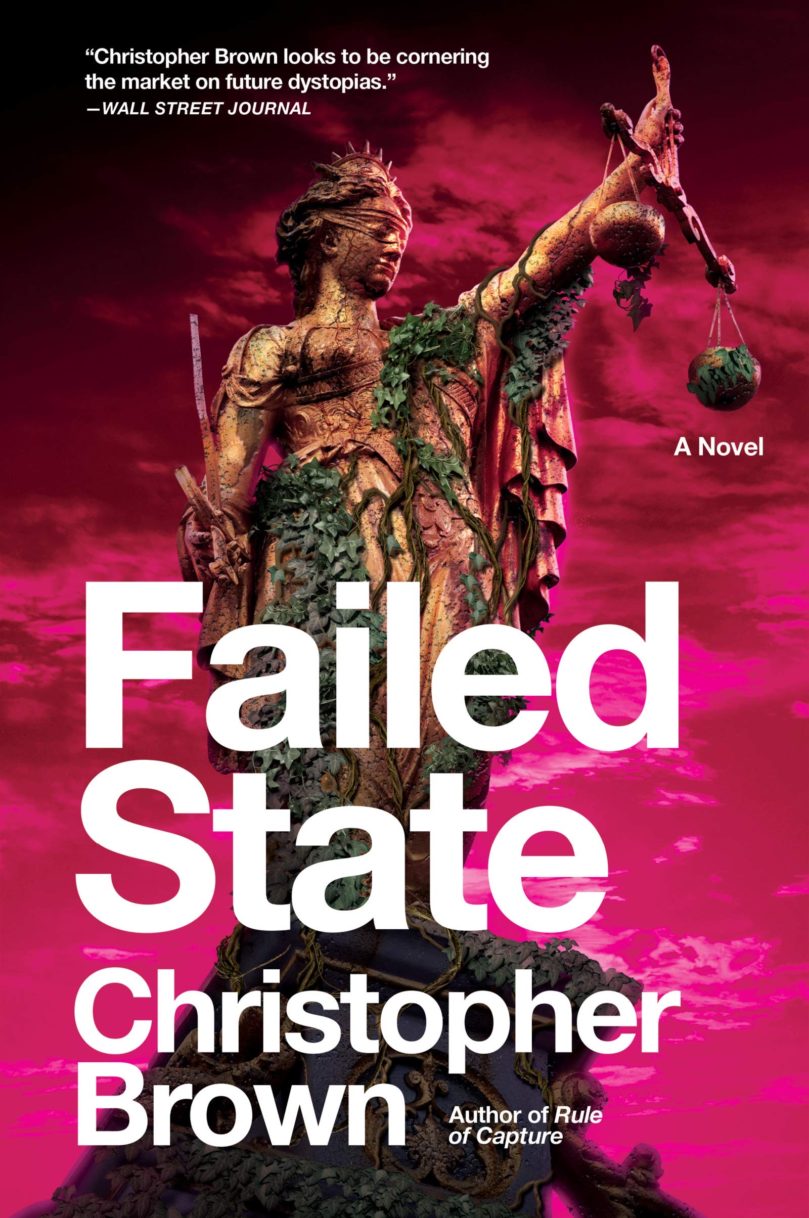First let me say that Failed State, Christopher Brown’s final novel in his dystopian triptych that started with Tropic of Kansas, is a good book. Like a really good book. It also continues his trend of writing novels that are some of the most frighteningly prescient books I’ve read in recent memory.
It’s a near future sci-if tale filled with economic, governmental and environmental collapse and it reflects a world that could be ours if we don’t heed all the warnings we’re receiving about global climate change, environmental collapse and the weakening of democracy throughout the world and here at home. It’s a novel that after you’ve finished it you can’t just set it aside and forget about it. You continue to think about it after you’ve reached that last page, turning over the themes and characters in your mind—the choices they’ve made, their impacts on the world.
It’s bleak and hopeful at the same time. It’s also disquieting. Moreso, perhaps, than his previous two books, Tropic of Kansas and Rule of Capture. Because even though the novel ends on a (somewhat) hopeful note—that maybe we can make a better future, even after all the damage we’ve done, to our planet and ourselves, it’s not certain.
Set after a second civil war (that occurred in Rule of Capture) the country is fractured and without central leadership. Some are trying to forge a new way but it’s not clear if they can succeed or if it can be better than what came before it. The leaders of this experiment in government are, in their own ways, just as flawed and prone to falling short of their ideals as any political movement is. And of course the oligarchs are still out there, more interested in making money and controlling their own empires than the good of the people and ready to go to war for profit. In between is Donny Kimoe, strip mall lawyer and sometime revolutionary, as flawed as anyone else but he seems to think that maybe, just maybe, the American experiment shouldn’t end just yet and that perhaps there’s a way to bring it all together again.
Brown, who’s also a lawyer by day, writes a legal thriller as taught as any written by John Grisham. With it he brings his experience as urban naturalist and futurist. Together he creates a vivid and wonderfully written world that extrapolates from our own into one that might be closer to what lies before us than any other dystopian future I’ve read. His world isn’t the emotionally numbed, science-focused, caste-driven world of Huxley’s Brave New World, or Orwell’s extreme socialist nightmare of 1984, or even Gibson’s cyber-jacked, gleaming chrome future in Neuromancer. It’s a near future of environmental, societal and political collapse that seems hauntingly close to the future we’re heading towards.
And that’s the other thing I find so disquieting about this book. It’s the timing. I can see where we are in 2020 and see how just a bit of a nudge here or there in our reality could send us into Brown’s imagined world. Our politics are coming to a head. Our upcoming election is the most consequential of our lifetimes. Getting it wrong could mean a slide into fascism. We are already, in many ways, an oligarchy. Our environment is collapsing around use. Global climate change leading to the entire west cost burning. Drought in several parts of the country. A historic chain of storms in the Atlantic. We’re on the edge and I think Brown’s world is a potential outcome if we don’t pull back. It isn’t a world I want to live in but it is one worth visiting, hopefully only in his books.
